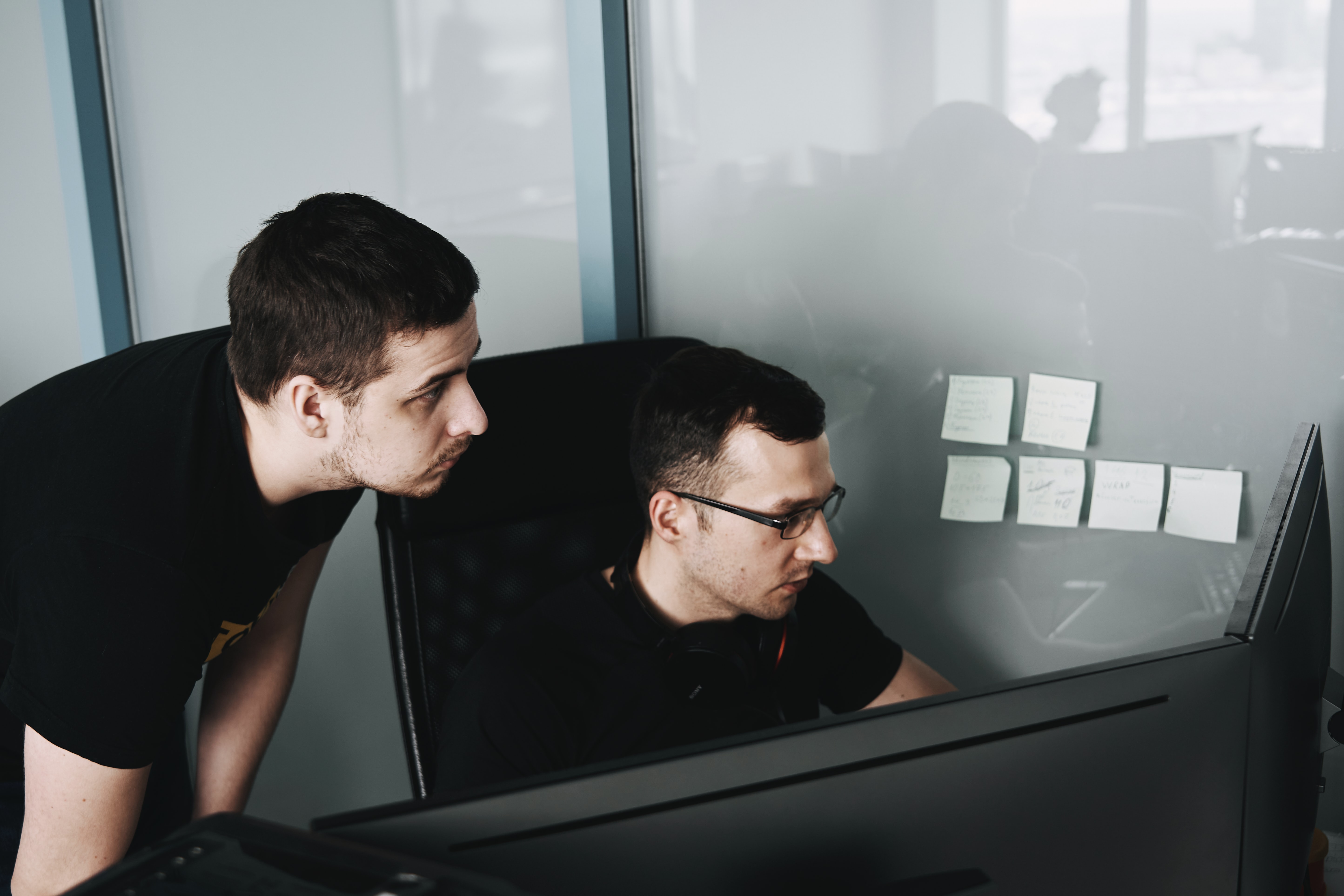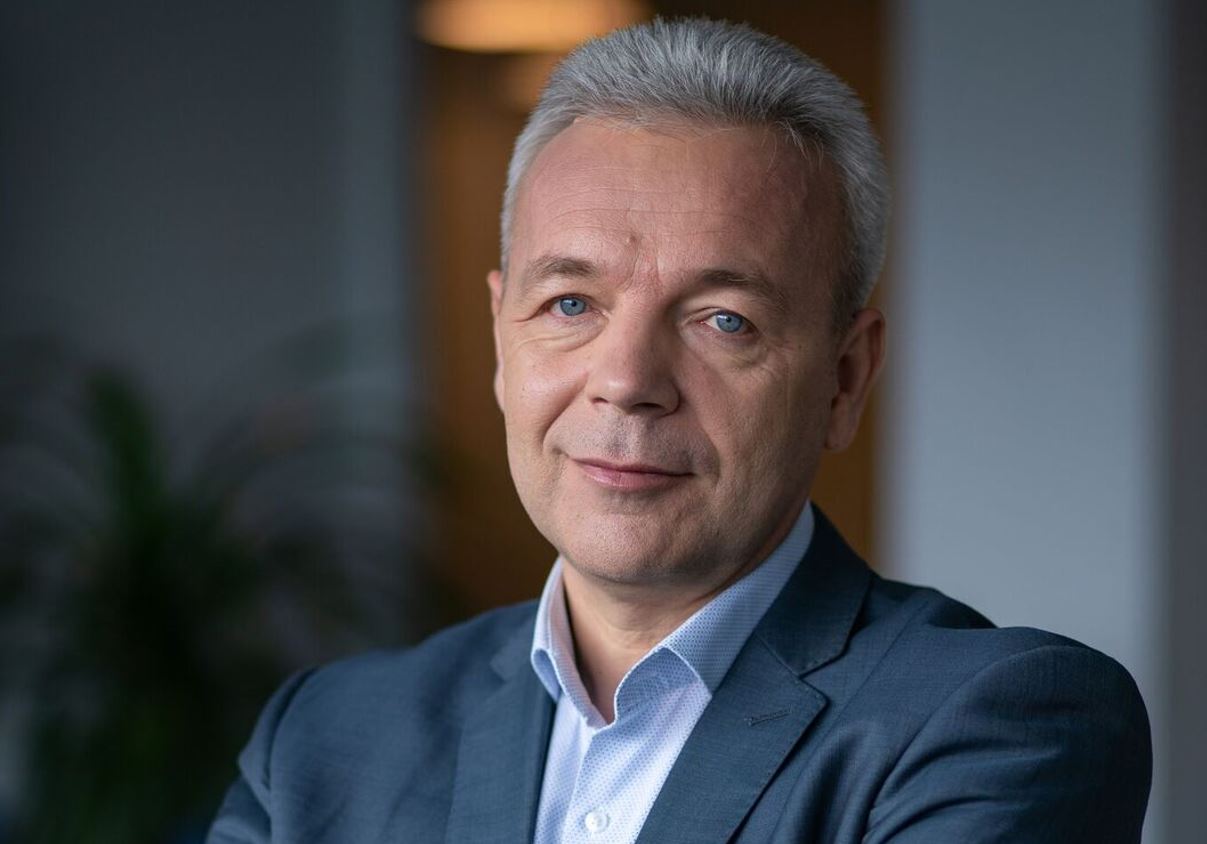Will Belarusian IT sector move to Ukraine's Diia City?

Belarusian HTP or Ukrainian Diia City - that is the question / collage by Ulad Rubanau
The IT hub Diia City was launched in Ukraine in February this year. Some say that Diia will become a serious competitor to the Belarusian HTP due to its tempting entry terms and tax breaks. Euroradio asked Dzianis Aleynikau, Diia City concept creator, and Yuri Antaniuk, vice-president and head of EPAM in Central and Eastern Europe, about why the Ukrainian hub might be interesting for Belarusian IT specialists.
Taxes at Diia are not for everyone
Dzianis Aleynikau is a lawyer, one of the authors of Decree No. 8 that triggered the liberalization and development of the Belarusian IT sphere. In Ukraine, he was an advisor to the Deputy Prime Minister and Minister of Digital Transformation Mykhailo Fedorov. He co-created the concept of the Ukrainian hub Diia City.

"The tax regime at Diia City is quite balanced: somewhere lower than in Belarus, somewhere higher," Aleynikau told Euroradio. "In terms of payroll taxes, then our [Belarusian HTP - Euroradio] income tax is now 13%, while at Diia City it is 5%".
The NSSF tax is calculated based on the average wage in the country, while in the Ukrainian hub it is based on the minimum wage - 22%. In concrete sums, the NSSF deductions in Diia will be about $50 plus 5% income tax. Diia also adds a 1.5% contribution to the military levy.
"In Diia there is an option to pay 18% income tax or 9% tax on the withdrawn capital," continues the lawyer. "In HTP there is no such thing, but there is an obligation to pay a levy of 1% of the turnover towards HTP. In general, these are different tax regimes, economists should make their calculations and residents must eventually make a choice.
For example, if a company does not pay dividends and reinvests all of its profit, it is interested in the Ukrainian tax regime with the tax paid on the withdrawn capital. If they do not withdraw capital, then accordingly they do not pay any tax. And if they are companies with a good profit, they are interested in the Belarusian HTP, because 1% of turnover and no profit tax. We have reproduced the Belarusian legislation norm of 0% on income, that is, on dividends of individuals accrued by a resident company, provided that they are paid no more than once every 2 years.
The main task of Diia City is to streamline the Ukrainian legal chaos
According to Dzianis Aleynikau, there are more than two hundred thousand IT specialists now in Ukraine. At the same time, from the point of view of foreign investors, the legal framework of the country was in chaos: it was not clear how to hire a developer without risk and who eventually will own the rights to the product created by the IT specialist. To put everything in order and make the Ukrainian hub in demand, as part of the creation of Diia City, extensive work was done to improve the legislation of the country. Changes affected the labor code, the tax burden and much more.
"Diia City solves the internal problems of Ukraine and gives it a good springboard to attract foreign investors, foreign RnD centers, which previously couldn't work in the country because of the legislation slowness," says Dzianis. "First of all, it is about the legal regime. By the law on Diia City we amended 26 laws and codes of Ukraine in order to provide foreign investors with business conditions, familiar to them by international practice. We gave all instruments of English law, which we once developed for Belarus and which proved to be effective. In Belarus, by the way, they are being implemented now for the whole country, not only for IT".
Taxes are not the main reason for relocation
Could tax preferences provoke a mass relocation of Belarusian programmers to Ukraine?
"Today, when choosing a hub, IT specialists are not primarily interested in tax preferences, but in the general conditions for work and life in the country," says Dzianis Aleinikau. "This is a combination of reasons. We cannot say that the tax regime is the only trigger for IT specialists to go to some countries. Understandable conditions, protection, a good level of socialization - that is the value. I heard an opinion that if you look at the whole issue, at the level of the majority opinion, IT specialists like it better in Belarus. We are different from Ukrainians in terms of socialization".
EPAM wants to join Diia City
The IT giant EPAM in the near future plans to apply for residency in Diia City. Yury Antaniuk, head of the company in Central and Eastern Europe, told Euroradio.
"Now we are working on possible scenarios of obtaining the resident status and the further organization of the company in a new environment. The most important thing for us is to make a smooth transition, without stress to the company processes," says the man.
Where is it more profitable for an IT resident to be located - in Diia City or in the Belarusian HTP?
"I think that the advantages and benefits are individual for each business," says Yury. "There are quite a lot of preferences for business [at Diia City - Euroradio]. First, the Ukrainian IT-industry has a guarantee of retaining its working conditions for the next 25 years. Secondly, it is a clear system of relationship between the company and the specialist. GIG contracts [a system where the employees are not hired to the staff, but are invited to specific projects - Euroradio] enable businesses to abandon both the risky in some points FLP model [with individual entrepreneurs] and the formal employment model, which is expensive in terms of taxation and obsolete in terms of regulation.
Also, the new model offers the opportunity to use the Withdrawal Tax (9%) as an alternative to the corporate income tax (18%). These are very good conditions for those companies which are planning to actively develop their business in Ukraine. In addition to guarantees and tax innovations, Dia City fixes the elements of English law in the Ukrainian legislation, improving the system of intellectual property protection. Time will show how all these innovations will be applied in practice," sums up Antaniuk.






















